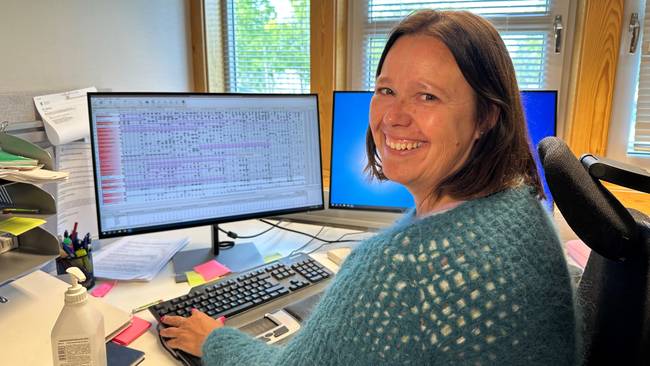Challenge:
The health and care sector across Norway’s municipalities faces severe operational strain due to high levels of employee absenteeism. This leads to frequent last-minute phone calls to staff asking them to cover extra shifts, increasing burnout and inefficiencies. Traditional staffing models struggle to predict and prepare for these fluctuations, causing disruptions in care delivery and financial strain from overuse of overtime and temporary staff.
Solution:
Enter SynPlan, a predictive AI solution developed by entrepreneur Hai Thanh Nguyen. Inspired by his wife’s burnout as a nurse frequently called in on short notice, Nguyen, who has a background from NTNU, set out to build a better way to staff healthcare services. By feeding five years of historical absenteeism data into a machine learning model, SynPlan can forecast absenteeism trends with remarkable accuracy.
The system predicts the likelihood of absenteeism up to six months in advance at a departement level, allowing shift planners to proactively fill staffing gaps well before they occur, eliminating the need for urgent calls and rushed scheduling.
Results:
Forecasting 80% of Sick Leave
-
According to SynPlan CEO Lars Dahle, the technology can predict approximately 80% of absenteeism in units with around 50 employees. This means 4 out of 5 absence days can be planned for well in advance.
Time Savings and Planning Relief
-
Lill Eva Lyngvold, head of staff planning at Leistad Adult Relief Center in Trondheim, was initially skeptical but now praises the system:
“It’s such a relief to know I don’t have to spend my whole day trying to get hold of someone.”
Enhanced Workforce Utilization
-
Lars Dyrdahl, CFO of Trondheim Municipality, emphasized how improved forecasting supports more robust shift planning:
“With more accurate projections of sick leave, we can reduce overtime and reliance on temp workers, improving service resilience for citizens and patients.”
Support from Labor Organizations
-
Lill Sverresdatter Larsen, president of the Norwegian Nurses Organisation, supports the initiative:
“Staffing plans must account for predictable absences like vacations and illness. Doing so reduces employee strain and improves care quality.”
A National Model for Sustainable Staffing
-
The approach aligns with recommendations from Norway’s Health Personnel Commission, which warns of future shortages in healthcare professionals unless new operational models are adopted. Dahle believes SynPlan answers this challenge:
“We must get the most health service value from each resource. This kind of technology is essential.”
Strong Validation from AI Experts
-
Professor Morten Goodwin from the University of Agder highlights the broader implications:
“The potential for Norwegian municipalities is enormous, from hospitals to building permits. AI can be a transformative tool.”
Quote:
“Most of the sick leave is already covered up to six months in advance. Our goal is not to predict individual sickness, but the probability of group absenteeism based on historical trends.”
— Hai Thanh Nguyen, Founder, SynPlan
https://www.nrk.no/norge/kunstig-intelligens-_ki_-kan-foresja-sjukefravaer.-skal-testast-ut-i-kommune-noreg-1.16523204
